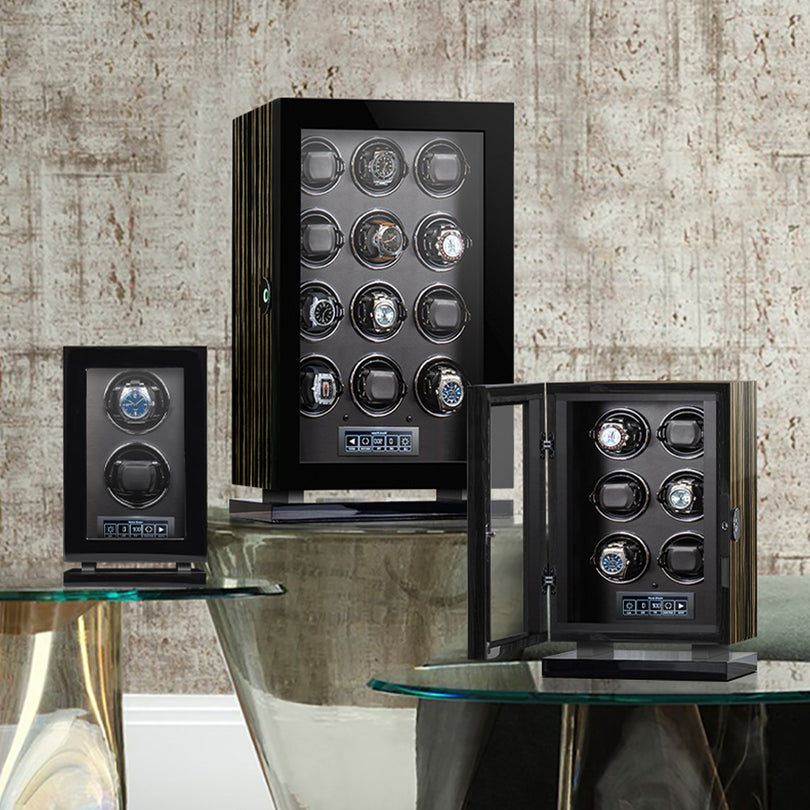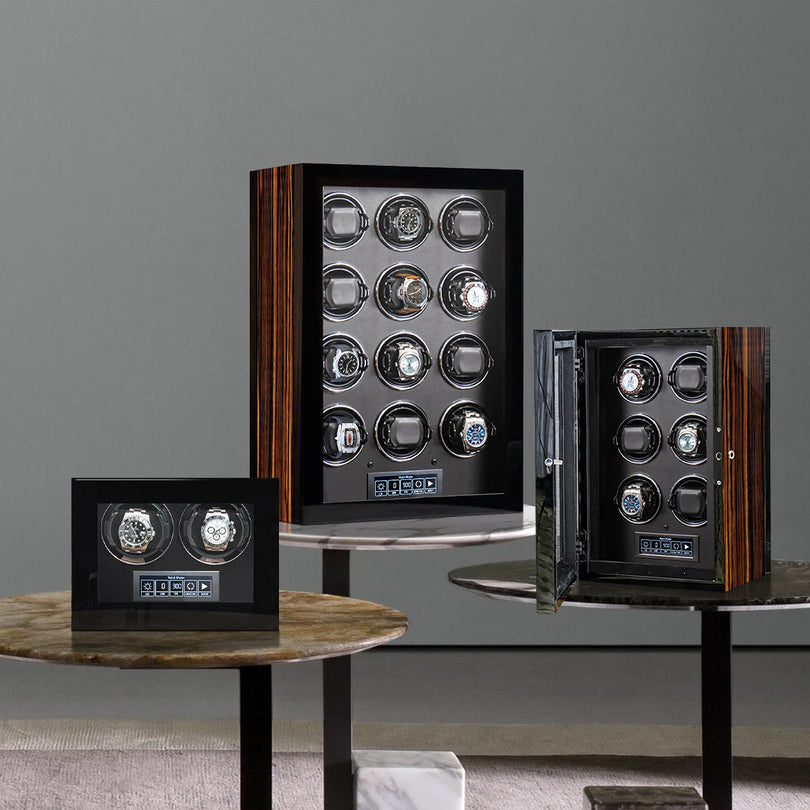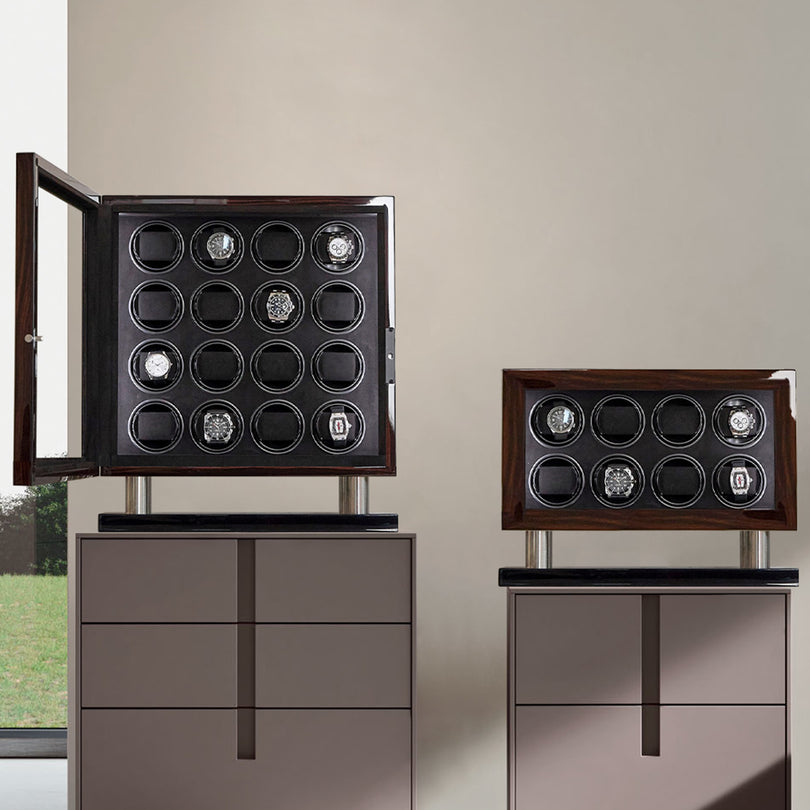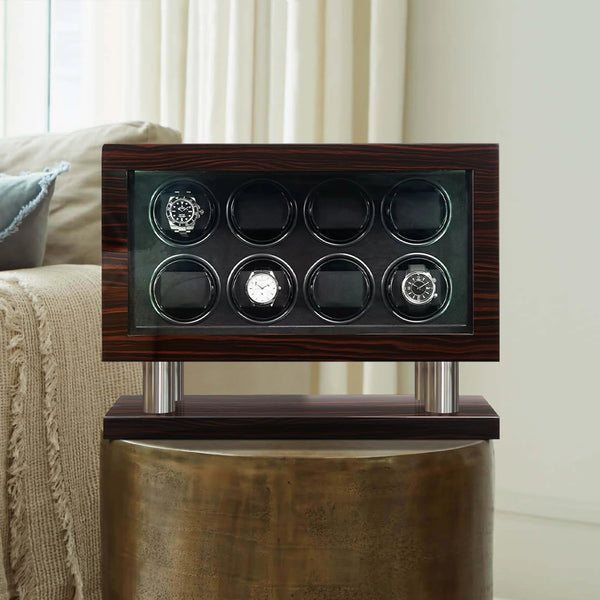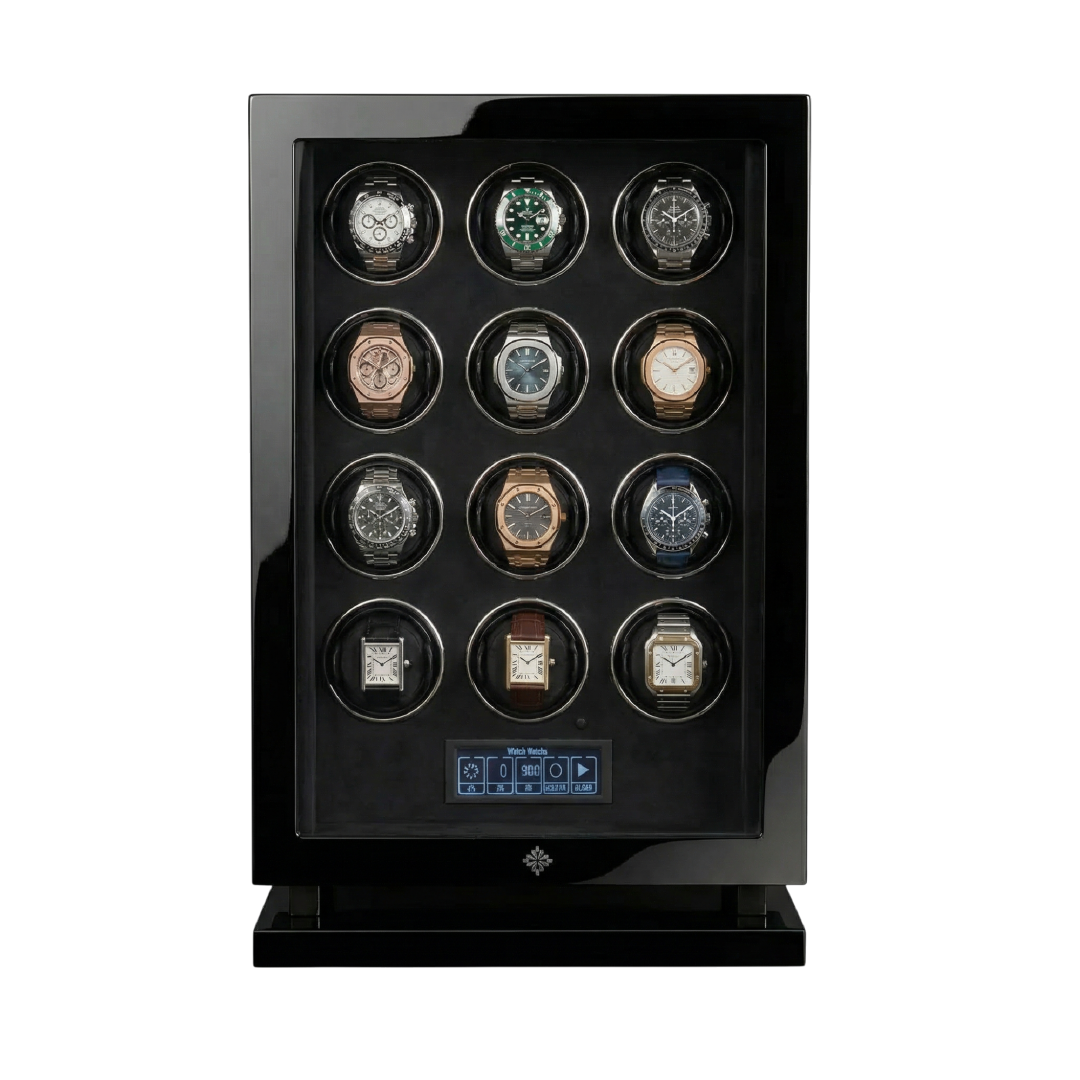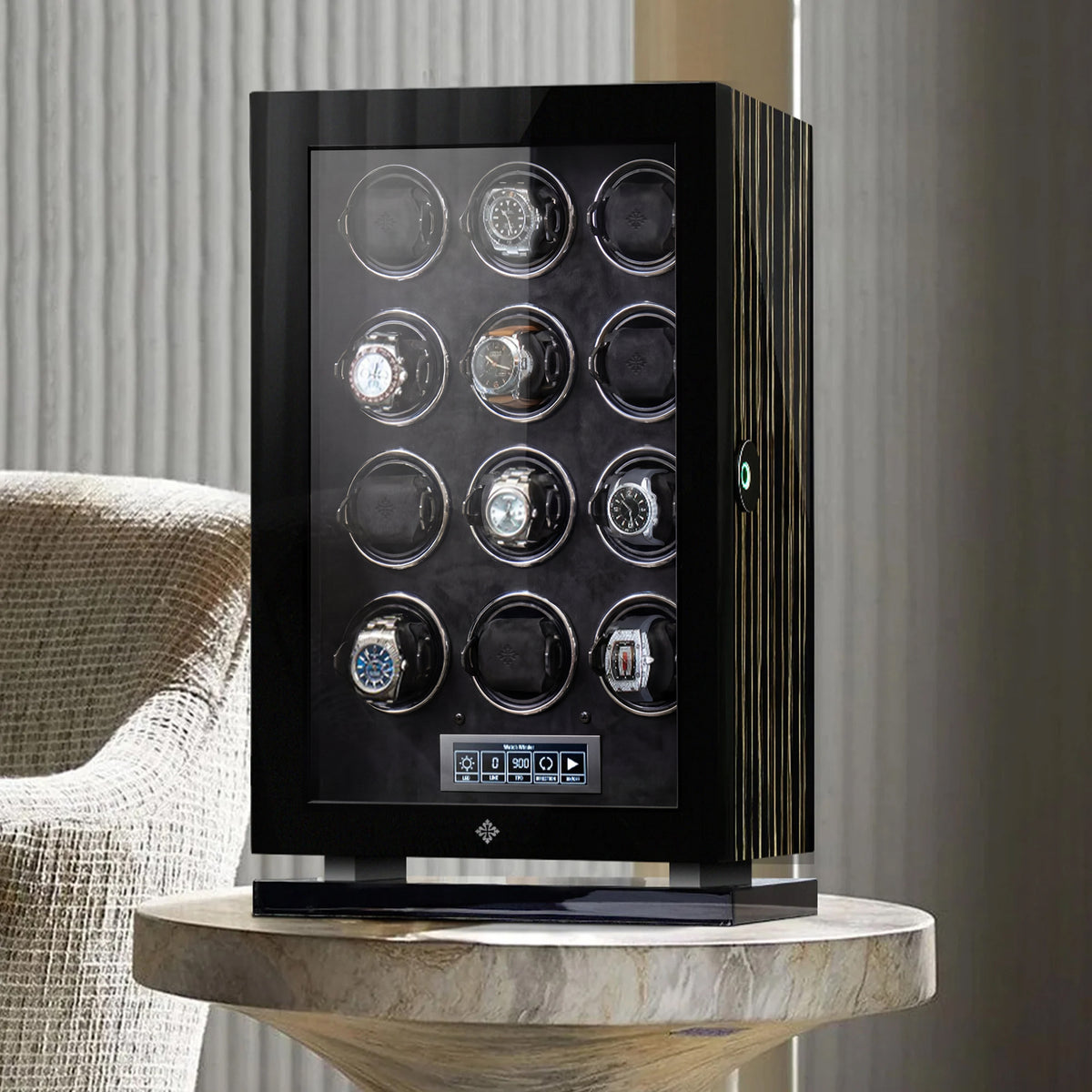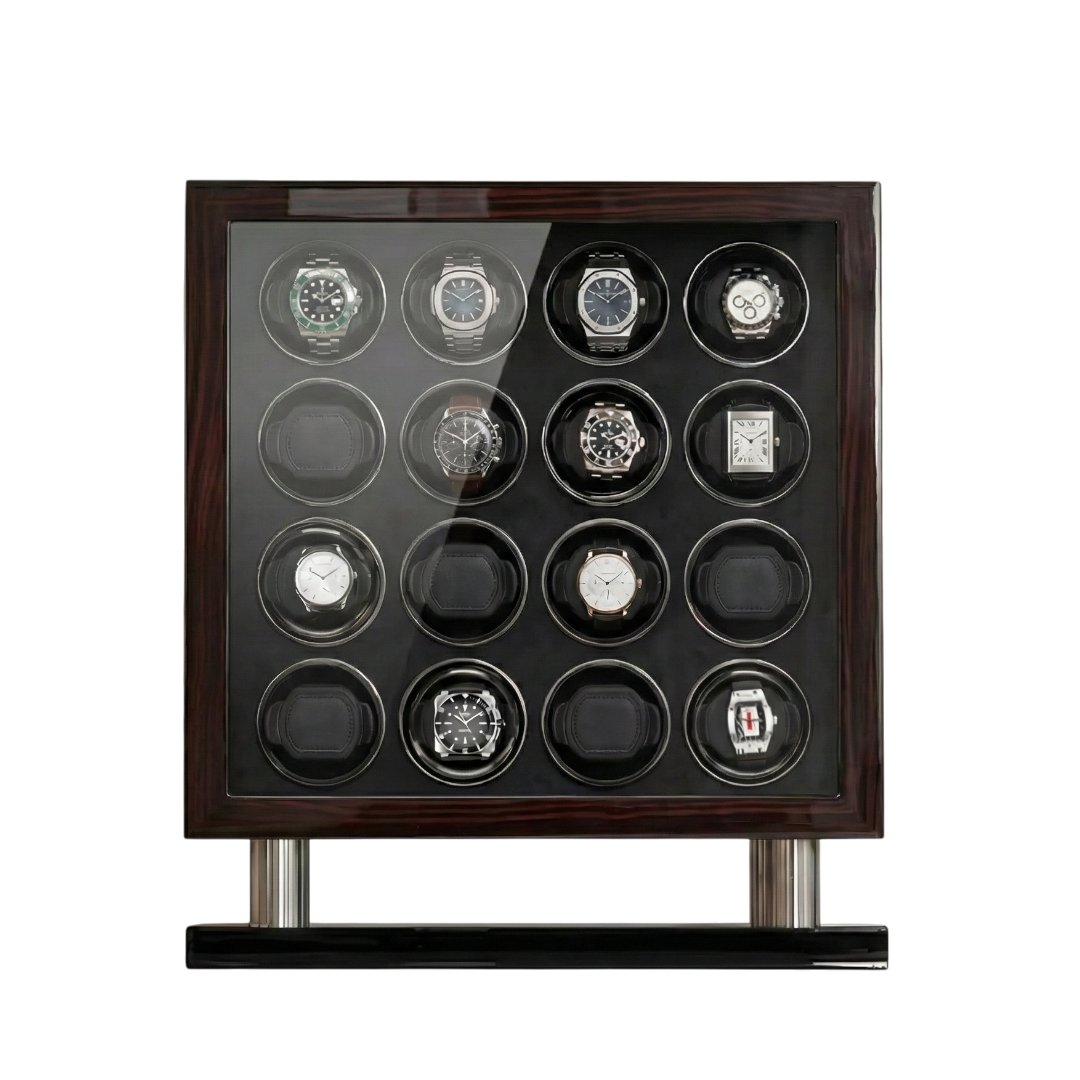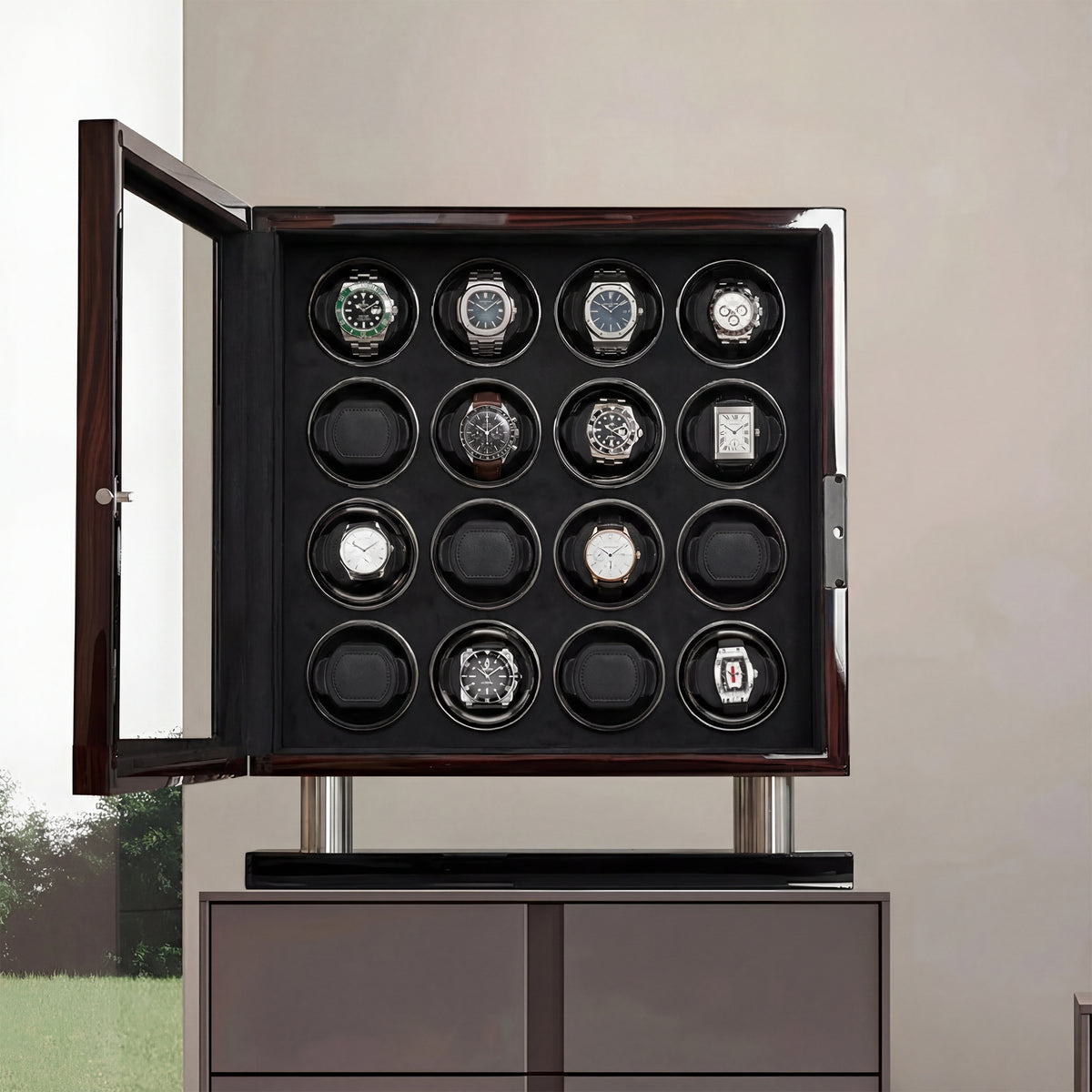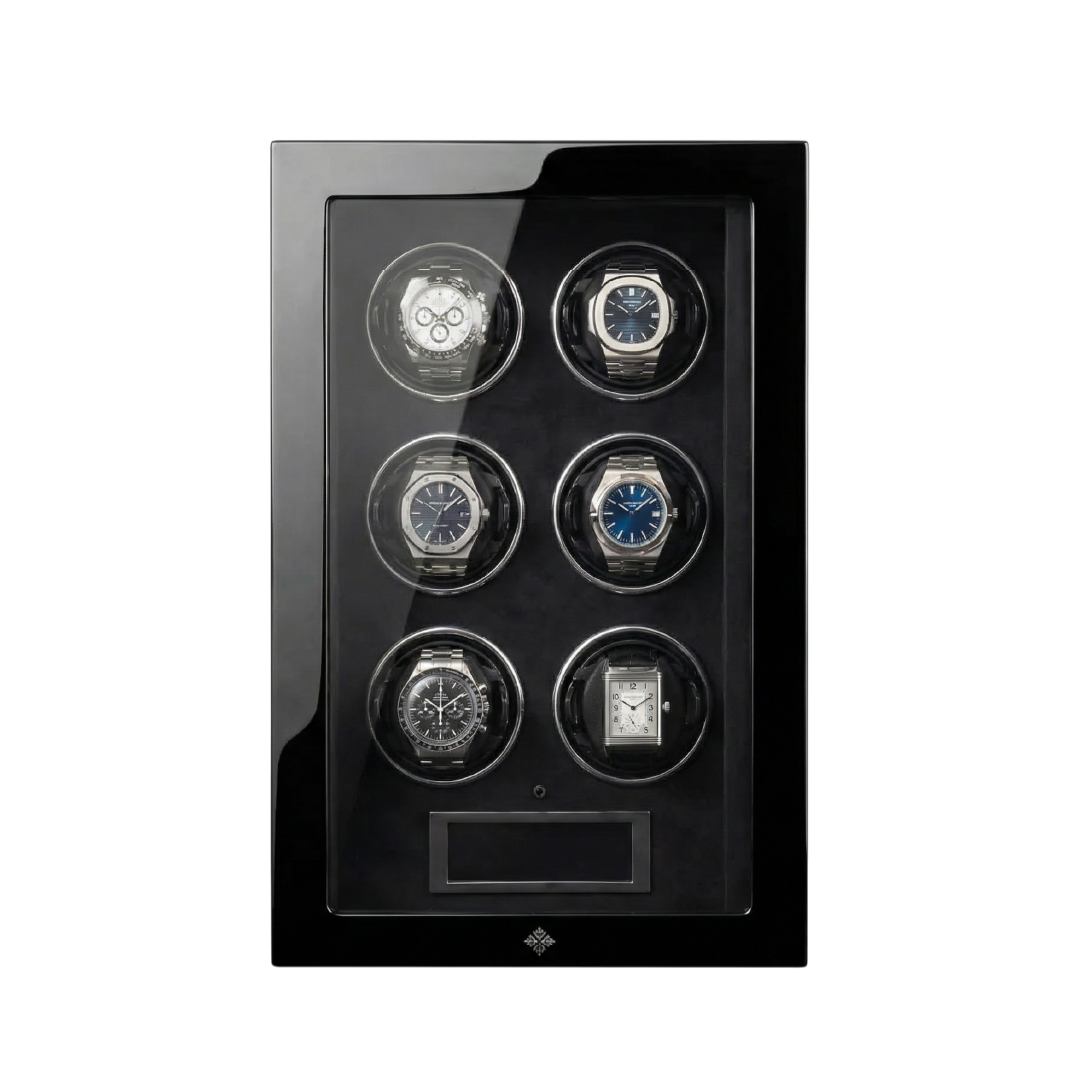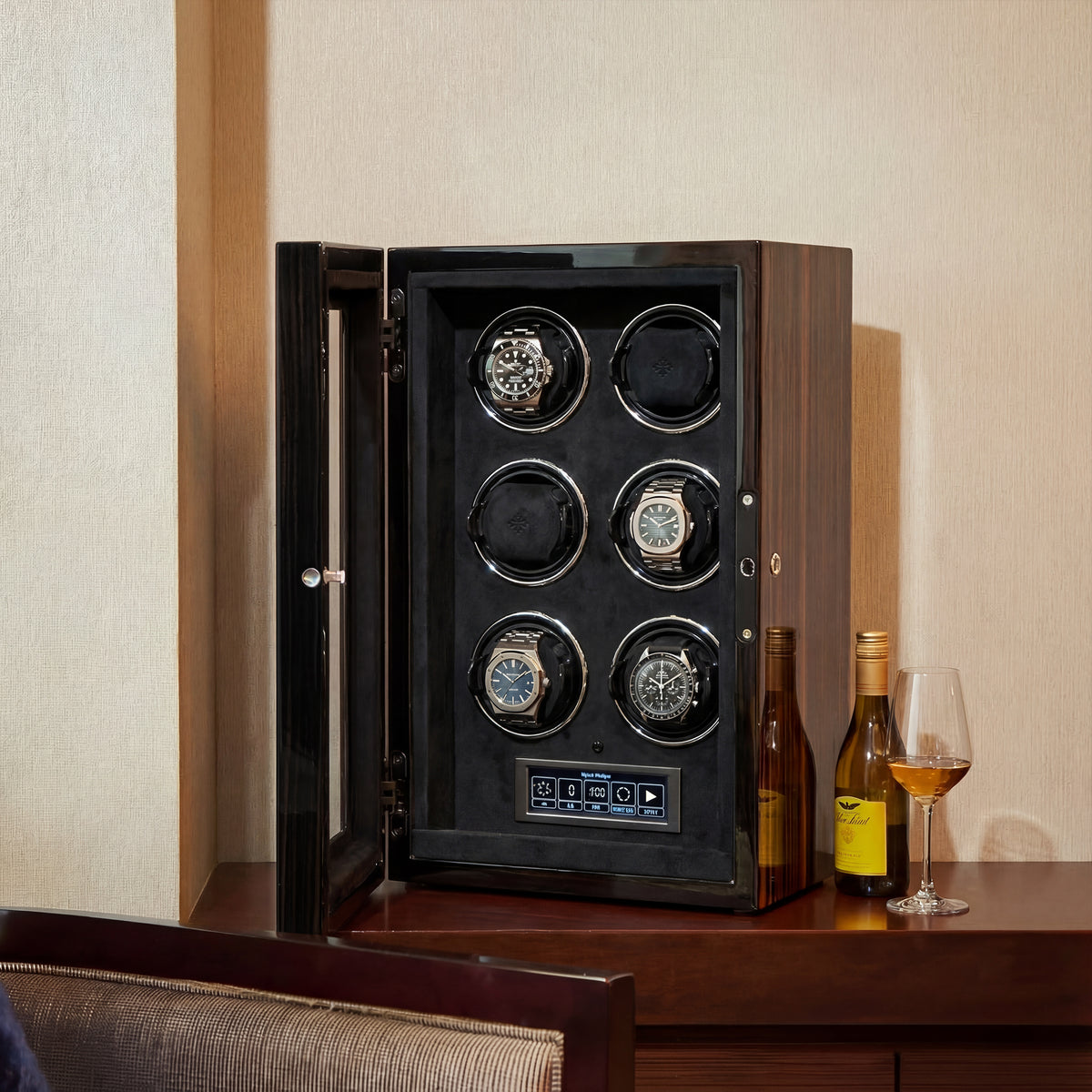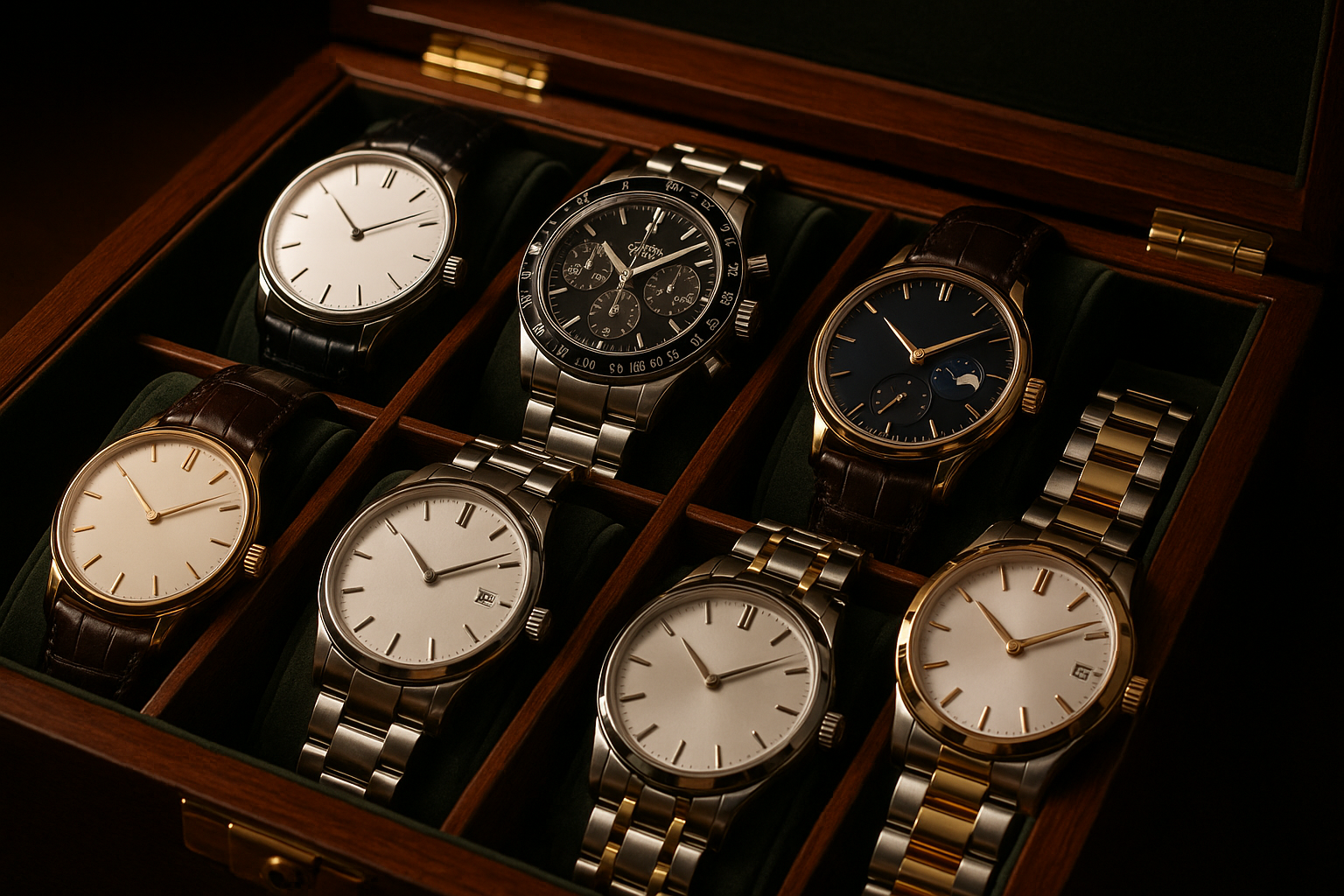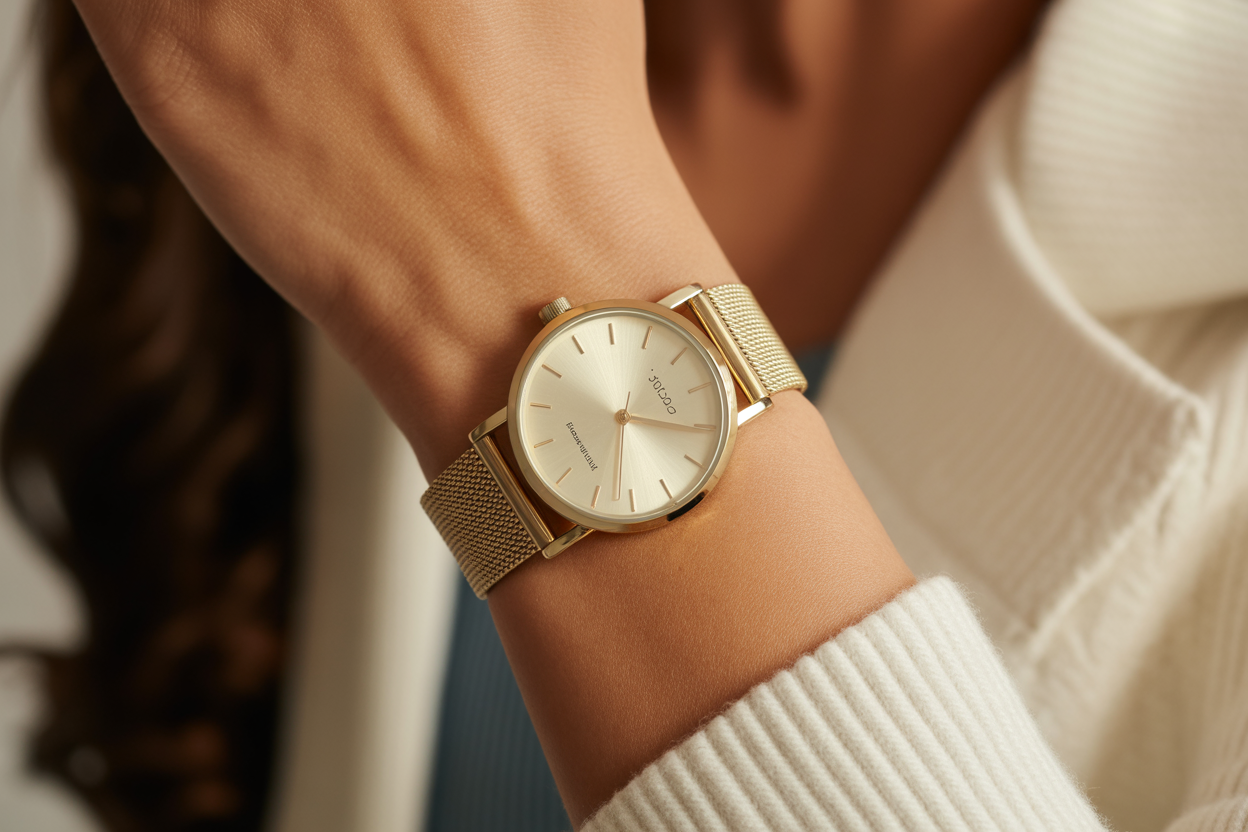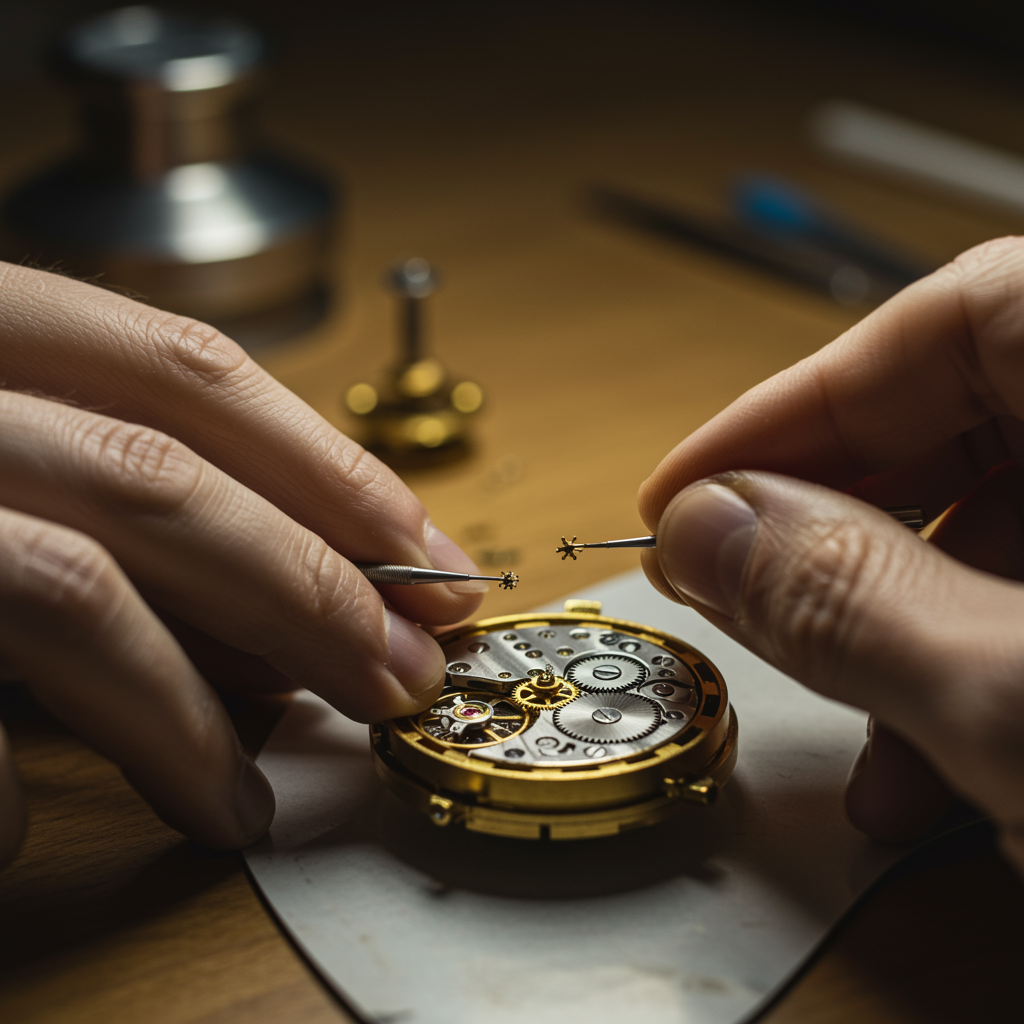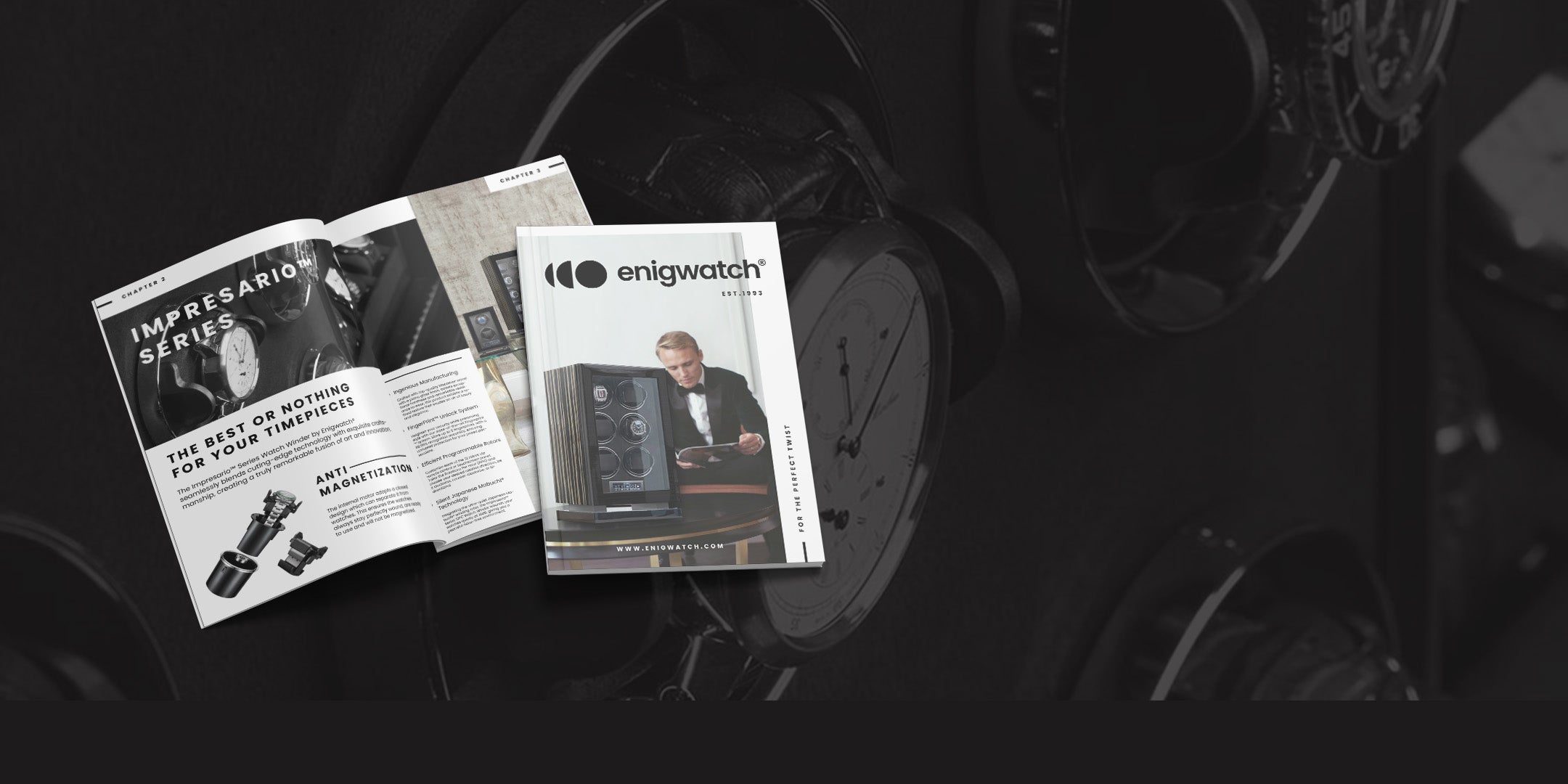Have you ever found yourself wondering about the inner workings of a watch and curious to know what makes it tick? It's possible that you've come across phrases like "automatic watch" and "quartz watch," but you've never really understood what they imply. These two kinds of watch movements, automatic vs quartz watch, are distinct from one another. The mechanism that makes a watch tick is called the watch movement, which is often referred to as a caliber. To put it simply, it is the engine that drives the watch and the thing that makes it go.
It is important to take notice that these are two completely different kinds of watch movements (aside from manual movement). Understanding how a watch works on its most fundamental level is essential to being able to distinguish between automatic vs. quartz movements in a timepiece.
Watches are powered by something called a watch movement, which is also sometimes called a caliber. In a watch, this mechanism is responsible for controlling the movement of the hands in watch, which provides an indication of the time's accuracy.
The next, and maybe the most crucial question, that springs to mind is: What exactly is the difference? Which one of these options is preferable? Which of these two watches is going to survive longer, and more importantly, should I choose one that uses an automatic vs. quartz movement?
Now, we can provide you with an answer to that question! There are significant distinctions between automatic vs. quartz watches; nonetheless, the answer to the question of which one is superior relies largely on the individual desire of the purchaser. In order to assist you in making the appropriate decision, we will go more deeply into the fundamental understanding of each kind.
Automatic or Quartz Watch, Which One is Better?
Let's get to know deeper about automatic vs. quartz.
1. Automatic vs. Quartz Watch History
In Europe throughout the 15th century, clocks served as the inspiration for the development of the very first automated or mechanical pocket watches. These early timepieces were intended to be worn around the neck and were first reserved for royalty and other members of the aristocracy. In addition, the fact that these timepieces were on the heavier side must have made it a real pain in the neck to wear them. In point of fact, Germany was the first country to produce one of these watches.

You might also like: 7 Best Watch Winders for Automatic Watches in 2023
The British did not start to fully popularize the usage of pocket watches among the nobility until the late 1600s. These early specimens were created by master artisans in bustling cities like Bristol, Manchester, and London. Until Swiss watchmakers started to make their presence known in the 19th century, the watch business was dominated by British watchmakers.
Abraham-Louis Breguet, a Swiss artisan, is widely credited as being the first craftsman to create and sell a wristwatch. Early wristwatches, which were first created exclusively for women, began to unexpectedly catch favor with males at the turn of the 20th century. In fact, by the time World War I broke out, wristwatches were a popular accessory among troops, and 10 years after the war's conclusion, pocket watches were all but extinct.
Over the following thirty years or so, mechanical watches would rise in popularity across the globe, with Swiss models eventually being the most well recognized and sought after. Then, a revolutionary new technology from Asia was introduced in the middle to late 1960s, and the watchmaking industry was irrevocably altered.
The rise of quartz watch
Quartz movement watches, pioneered by Japanese watchmaker Seiko, are both more affordable and more precise than their mechanical counterparts. As a consequence of the rapid rise to dominance of these new watches, the Swiss market almost collapsed. Much of the 1970s and 1980s may be characterized by what is now known as the "Quartz Crisis."
The Swiss were capable of responding although slowly at first. Even Patek Philippe and Rolex, two of the most revered brands in the watch industry, were compelled to produce more affordable quartz-based versions. Of course, they ensured that it had that upscale Swiss look and feel. The introduction of the Swatch brand helped stabilize the Swiss low-priced watch market.
Quartz watches were a game changer for the watch business when they were first introduced. More than ninety percent of timepieces manufactured nowadays have a quartz mechanism. More than two-thirds of the Swiss watch industry workforce perished during the quartz crises of the 1970s and 1980s, and dozens of businesses went out of business for permanently.
To grasp better about the difference between an automatic watch with a quartz watch, aside from knowing its history, we should also know about the movement between the two. Thus, let’s move to the next section, which is the area where we will break down the movement of the automatic and quartz watch.
You might also like: Automatic Watch Buying Guide for Beginner
2. Automatic vs Quartz Movement
Mechanical timepieces do not need batteries to function. There are two distinct varieties, which are referred to as self-winding automatic watches and manually wound watches, respectively. Automatic watches are very well-liked since they get their power from the movement of the wearer's wrist. These watches have a higher level of complexity and include components such as a rotor, balance wheel, gear-trains, and a reverse mechanism.

Automatic watches are powered by a rotor that is linked to the movement of the wearer and then spins freely on its own. This allows the watch to function. The energy is directed via this rotation, which also winds the mainspring. The timekeeping precision of these watches is unaffected even when they are worn for extended periods of time.
Because automatic watches are comprised of a great number of minute elements, their production is both time-sensitive and labor-intensive; thus, their prices are much higher. In addition, they call for a great deal of upkeep due to the fact that they have to be worn on a regular basis in order to be effective.
While for the quartz watch, as its name indicates, is made up of a tiny piece of quartz (silicon dioxide) crystal that is carefully combined with the workings of the watch. Quartz watches are powered by batteries and use a lower amount of energy than other types of wristwatches, which means that the battery does not need to be replaced for many years.
A battery is used to provide an electrical current through the quartz crystal, which allows the quartz movements in the watch to generate power. When electricity travels through a crystal, it causes the crystal to vibrate and oscillate at a frequency of 32,768 times per second. This frequency is very close to being entirely stable. Quartz is the ideal material since the watch hands can indicate the time with a high degree of precision because to the quartz's precise vibrations.
As a result of the information presented above, it is possible to draw the conclusion that quartz watches are completely trustworthy in terms of the measurement of time. Furthermore, quartz watches have the additional advantage of requiring little maintenance, as the battery only needs to be replaced once every few years.
3. Automatic vs. Quartz Weight

You might also like: 4 Best Automatic Watches Under $500 to Buy 2022
The weight is another distinction between quartz and automatic timepieces. Automatic timepieces, in comparison to quartz ones, are often larger and heavier. All the moving components of an automatic watch are made of steel, so that's why. The key is the difficulty of the action. Extra features like alarms, chronographs, perpetual calendars, etc., add bulk. To some extent, the variation in weight may be attributed to the specifics of the watches themselves.
Quartz watches are the way to go if you want a lightweight timepiece. However, an automatic watch is the best option if you're looking for a timepiece with a wide range of features and don't mind wearing something a little heavier on your wrist.
4. Automatic vs. Quartz Reliability

It might be difficult to distinguish between a quartz watch and an automatic watch based just on their exteriors. If you pay careful attention to how the second hand moves on your watch, you will easily be able to tell the difference between a quartz watch and an automatic watch.
The second hand of a quartz watch has the characteristic tick-tock motion that is more often associated with clocks. A automated watch will have a fluid action that may be described as sweeping for the second hand. But despite the fact that these two varieties of watches both have very comparable exteriors, the primary distinction between them lies inside their mechanisms. These watches' "brains," if you will, are what allow them to perform their functions in a manner that is distinct from one another, and we will discuss that in a minute.
Both quartz and automatic watches are dependable and are able to tell the time to within a reasonable degree of precision. However, quartz timepieces are regarded as being more accurate than their mechanical counterparts. A quartz watch has the ability to measure precise time to within a half second every day. There is a possibility that an automated watch may lose or gain a few seconds every day.
Because automatic watches have a greater number of moving components, there is a greater possibility that the watch may break, which will result in a less precise reading of the time. Your capacity to properly maintain your watch will, to some extent, determine how dependable it will be in the long run.
You might also like: Grand Seiko Quartz: Worth It? Discover Superiority
5. Automatic vs. Quartz Durability

When it comes to quality, experience matters more than anything else. Investing money on something that isn't even worth a penny is a waste of time and money. To be a watch fan needs you to be an expert, particularly in matters pertaining to the timepiece's longevity.
It is said that something is durable if it can withstand the test of time without suffering any major degradation in either its quality or its worth. On the other hand, it is impossible to determine the price of a watch based just on the initial impression you get of it.
It is possible that proving the quality of automatic men's timepieces or automatic women's wristwatches may take many months or even years, but one thing is certain: when it comes to the war of automatic vs. quartz watch durability, the latter will emerge triumphant.
Here are a few explanations for why an automatic (self-winding) watch is a reliable front-runner in the watch industry.
Elevating Your Watch Investment: Top Recommendations for Automatic and Quartz Timepieces
In the grand debate of Automatic versus Quartz, where do you stand? The rich history and precision engineering of Automatic watches have their allure, while the accuracy and low maintenance of Quartz watches appeal to many. But here's the thing: whether you're an Automatic aficionado or a Quartz enthusiast, the real challenge lies in preserving the beauty and functionality of your prized timepiece. As we conclude our deep dive into the world of watches, let's explore some top-notch accessories designed specifically for Automatic and Quartz watches, ensuring they remain as timeless as the day you bought them. Ready to discover? Onward we go!
Yachtline™ Series 8 Watch Winder
For those who cherish the intricate mechanics of Automatic watches or the precision of Quartz timepieces, the Yachtline™ Series 8 Watch Winder is a must-have. Designed with state-of-the-art technology, this winder ensures that your Automatic watches maintain their accuracy, while also being suitable for Quartz watches.
Its features, including multiple rotation settings and built-in timers, make it a versatile choice for any watch enthusiast. By using this winder, you're not just preserving the functionality of your watch; you're elevating its lifespan. Don't miss out on this opportunity to enhance your watch collection. Grab yours now!
Centennial™ Bulletproof Safe Box
When it comes to safeguarding your precious Automatic and Quartz watches, the Centennial™ Bulletproof Safe Box is second to none. Crafted with meticulous attention to detail, this safe box offers unparalleled security, ensuring that your timepieces are protected from potential threats. Its bulletproof design, combined with advanced locking mechanisms, makes it an impenetrable fortress for your watches.
Beyond security, its interior is designed to preserve the integrity of your watches, making it an investment that pays dividends in the long run. Elevate the safety of your prized collection with this unmatched safe box. Secure yours today!
The Excellent of Workmanship and Engineering
The production of high-quality automatic watches requires a lot of work, devotion, accuracy, and precision along with a number of intricate procedures to reach a level that is far higher than in the past.
As a result, excellent workmanship is one thing that distinguishes one watch brand from the others. Even if everyone has the potential to become a master of their craft, the result speaks for itself. Although automatic watches are the most durable, quartz watches are still excellent.
Even with all of these complications, automatic watches are able to keep up their dependable reputation throughout time.
The Quality of Materials
High-quality components are another important factor in the perception of automatic watches as superior than quartz.
Watch makers place a high value on using only materials that have been shown to survive a variety of manufacturing and shipping circumstances in order to retain the quality of a self-winding wristwatch. To save costs, good quality shouldn't be sacrificed. These two need to preserve balance so that each might have a safe place.
The Advance of Technology
Without the aid of new technology, the world of today cannot be considered "modern." The technical advancement in watchmaking has been enormous throughout the years. History has long recognized the complexity of mechanical clocks, which are made feasible by the methods and practices of a technologically advanced civilization.
Technology may be useful or harmful. It is a tool that people employ to either harm or assist one another. However, you should consider yourself fortunate that it has saved the watch business.
A watch will also not survive a lifetime if adequate human involvement is not observed, regardless of how accurate and exact the watch is. Learn more about how using a watch might be impacted by human activity.
What we can gather from this breakdown is that every wristwatch has certain requirements. Quartz is an excellent option for a low-cost, low-maintenance watch. Automatic watches, on the other hand, are the way to go if you want something more sophisticated and complex. Automatic watches are great for keeping time, but they need to be worn every day to work properly. Although this might change depending on the piece's power reserve, practicing every day is the best way to become better. Therefore, the automatic watch is the answer if you are a daily wearer, love workmanship, enjoy digital mechanics, and want to separate out from the crowd.
To get more about interesting and educational articles about watch, watch winder, safe box, and jewelry box, you can visit our page at enigwatch.com. Have a good day!

